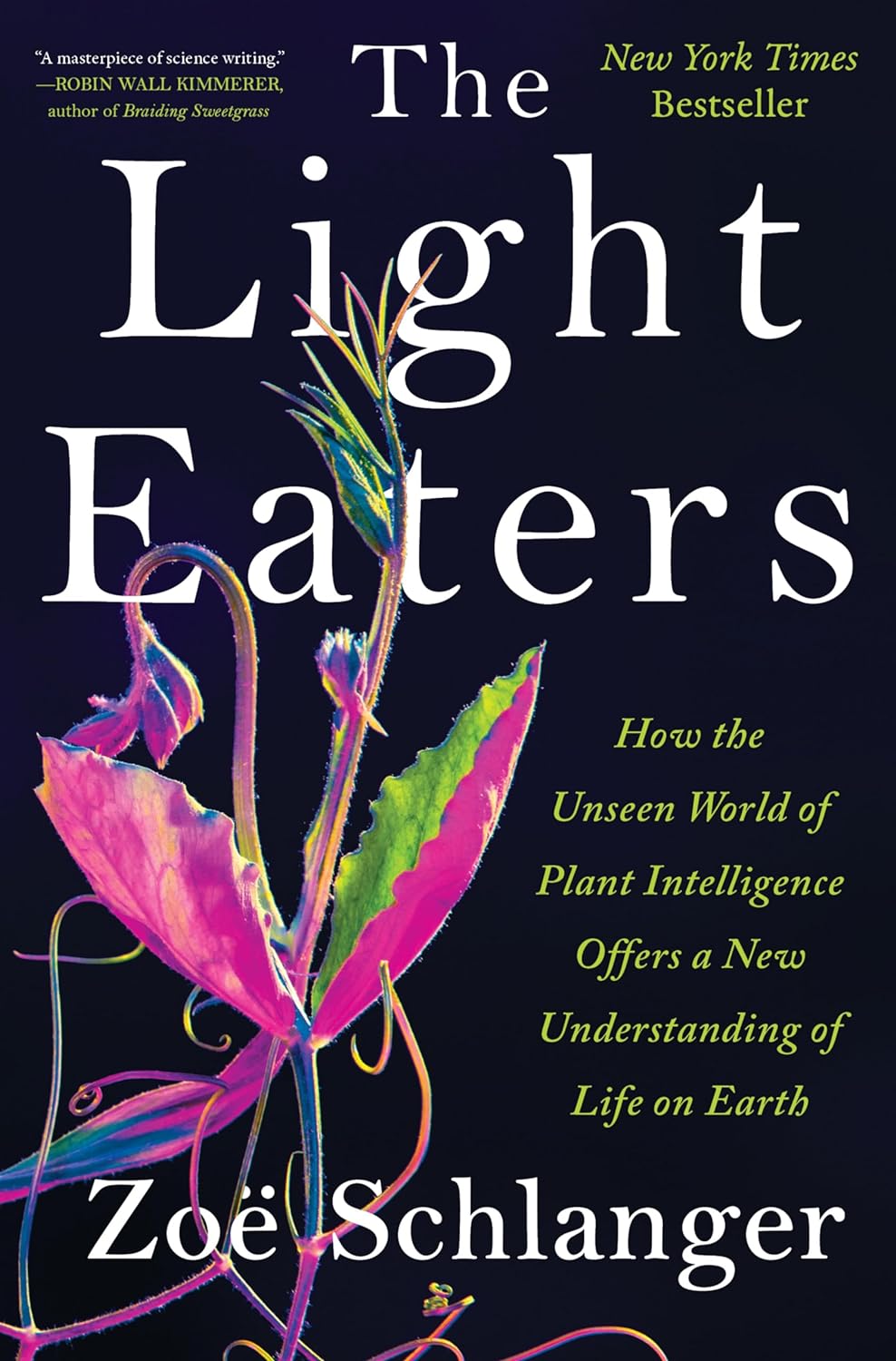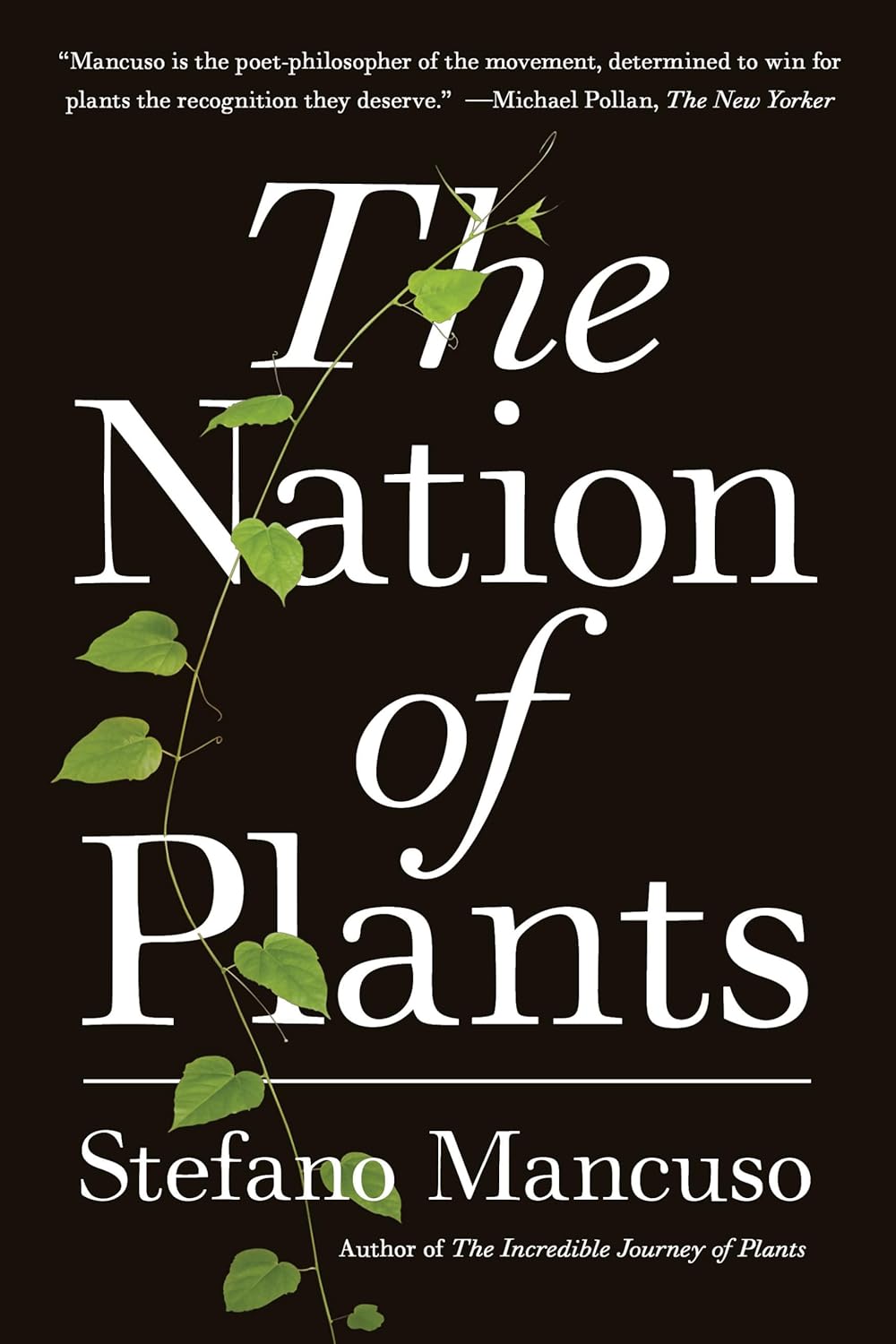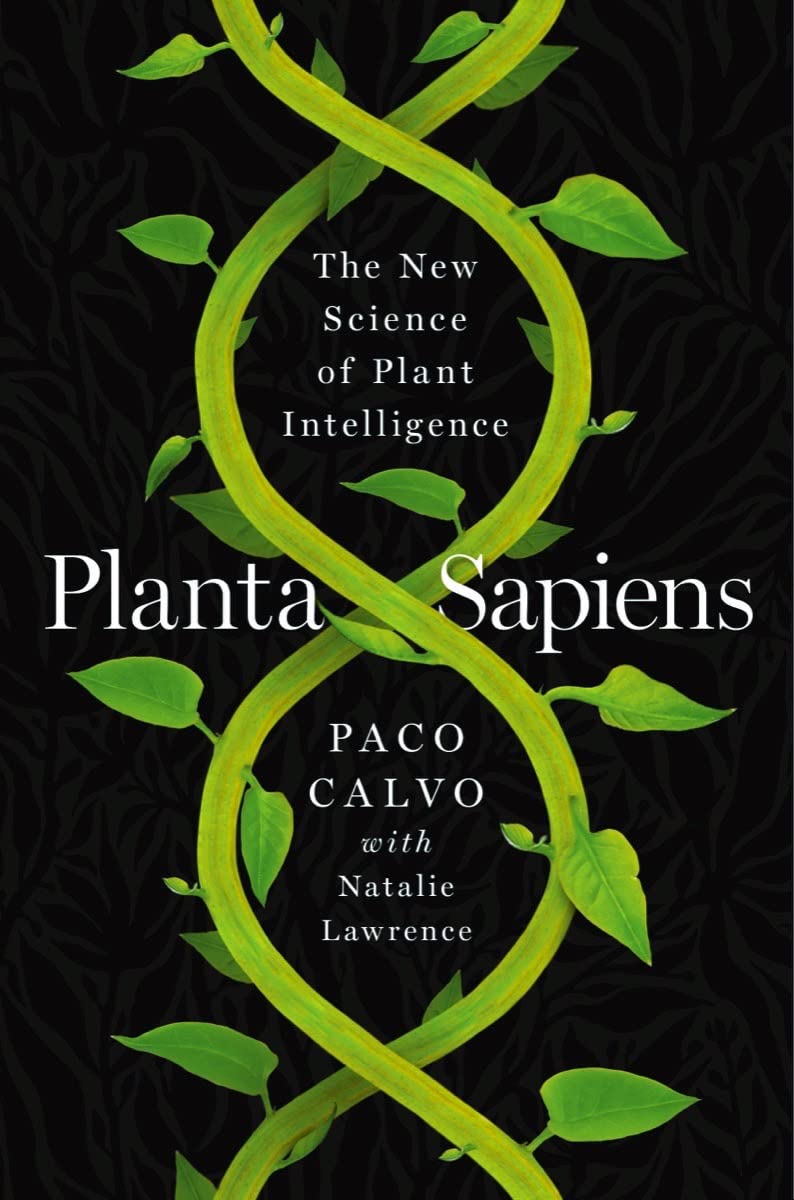Three Recent Books Argue for Consciousness in Plants
The award-winning environment journalist who reviews the books tackles the question, “If so, is it right to eat even plants?”In New York Review of Books this month, Elizabeth Kolbert reviews three recent books advocating, one way or another, that plants are conscious. She also raises the awkward question of plant rights.

Kolbert, whose specialty is environment issues, won the Pulitzer Prize for The Sixth Extinction (Holt 2014). So her take on plant consciousness and plant rights likely provides a hint of what to expect down the road.
Of Zoë Schlanger’s The Light Eaters (Harper 2024), she notes that Schlanger, a staff writer at The Atlantic, started studying plants as a distraction from her climate change beat. But she soon found out about the immensely complex signalling systems plants use, akin to those of animals:
Plants communicate with animals as well, sometimes honestly, sometimes not. Corn plants that are being nibbled by caterpillars release chemicals that attract parasitic wasps. The wasps lay their eggs inside the caterpillars, killing them—a process that benefits both participants in the colloquy. Spider orchids synthesize chemicals that very precisely mimic the pheromones emitted by female wasps. These chemicals attract male wasps, which try to mate with the orchids. In this case, the wasp is frustrated, while the plant gets pollinated.
Elizabeth Kolbert, “Savvy in the Grass,” NYRB, October 2023
How should we understand this behavior?
Does it mean that plants feel pain and are conscious, as cell biologist František Baluška a founding member of the Society of Plant Signaling and Behavior argues? Baluška makes his panpsychist commitments clear to Schlanger: “ think consciousness is a very basic phenomenon which started with the first cell.”

Italian botanist Stefano Mancuso’s The Nation of Plants (Other Press 2021), translated from the Italian by Gregory Conti, offers to speak for the plants:
In Nation of Plants Mancuso imagines himself as the spokesman for the vegetable kingdom. His green brethren have drafted a constitution reflecting the insights they have gained over hundreds of millions of years and have deputized him to deliver it to Homo sapiens, a species that’s been around for only a small fraction of that time. “Learn from those who have more experience than you,” Mancuso’s fictional photosynthesizers exhort.
Kolbert, “Savvy”
Indeed, Mancuso’s plants remind one of trademark 1950’s space aliens as “they” (i.e. Mancuso) go on to explain the ways in which plant minds are superior to human minds. No surprise, they have an important message for us too: We are ruining the environment.
Imagine that. Brilliant, ecologically concerned scientists have unexpectedly located genuine consciousness in plants — and, even more remarkably, the plants sound just like the scientists themselves!
Of philosopher of biology Paco Calvo’s Planta Sapiens: The New Science of Plant Intelligence , with Natalie Lawrence, (Norton 2023), she notes
Calvo argues that people have undervalued vegetable intelligence because plants are so different from us: “We can’t look at their faces to understand what is going on internally.” Still, he believes, it should be possible for us to sympathetically engage with them, to imagine—to paraphrase Thomas Nagel—what it is like to be a bamboo. He points to octopuses, which, like plants, lack a centralized brain but clearly are quite clever… Toward the end of Planta Sapiens, Calvo says that he considers plants to be akin to people suffering from locked-in syndrome. Locked-in patients are almost completely paralyzed, but nevertheless aware and able to communicate through eye movements.
Kolbert, “Savvy”
Deep in the weeds
Calvo alludes to philosopher Thomas Nagel’s question, What is it like to be a bat? Nagel’s point was that sentient consciousness, the ability to feel things, is not the same as mere reaction. If there is something that it “is like” to be a bat, then bats have sentient consciousness.

But there may be nothing that it “is like” to be a sand dollar — or a bamboo. That is quite consistent with sand dollars and bamboos having complex reactions to stimuli. In the same way, a fire alarm linked to a computer network could trigger a complex chain of internal and external events in an empty building but there is nothing that it “is like” to be that building. In short, we cannot simply infer sentient consciousness from complex reactions.
As for the octopus, it has a large and immensely complex nervous system involving nine brains. Possibly due to the complexity of operating eight tentacles at once, the system is partially decentralized. The eight subordinate brains controlling the tentacles have some independence from the central brain that issues key commands, located between the eyes.
Based on what we know from other research, there probably is something that it “is like” to be an octopus. But the eight-tentacled wonder is not an apt comparison with life forms like plants that do not even move around.
Humans with locked-in syndrome are an even less apt comparison with plants. They are known to have human minds; the challenge is communicating with them. Human consciousness — which goes far beyond sentient consciousness — is an ongoing conundrum anyway.
If plants are conscious, is it ethical to eat them?
Should a vegan even eat plants?, Kolbert asks:
Perhaps it would still be okay to eat seeds and grains, but harvesting them would be tough. Could people in good conscience mow down a field of wheat or rice plants? Could we even sow a field of wheat or rice, knowing that the plants might be suffering from a sense of overcrowding, say, or panic, but be locked into silence, unable to express themselves?
Calvo seems reluctant to follow his logic to its logical conclusion. The furthest he’s willing to go is to ask: “Were plants to be given the status of ‘sentient,’ would this give them rights that might encumber our exploitation of them?” People have, he acknowledges, “been slow to consider these issues.”
Kolbert, “Savvy”
She now feels twinges of guilt, she tells us, about weeding her garden but she goes right on doing it. Whether all plant consciousness advocates will push aside a similar sense of guilt — exercised on behalf of all of us — remains to be seen.
Now more than ever we need a sound philosophical perspective, to sort the wheat from the chaff.
You may also wish to read: “Plant philosophy” denigrates human uniqueness – Wesley J. Smith Much contemporary advocacy is obsessed with deconstructing human exceptionalism. Plant philosophy seeks to change the definitional understandings of “intelligence” to elevate the moral status of plants relative to humans. (August 6, 2024)
